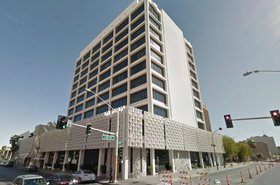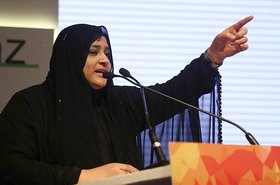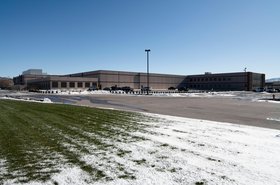The US Securities and Exchange Commission has shut down a multi-million dollar Ponzi scheme involving a fake supercomputer.
The SEC has filed an emergency action and obtained a temporary restraining order and asset freeze to halt an alleged ongoing offering fraud by Las Vegas-based Profit Connect Wealth Services Inc.
Las Vegas resident Joy I. Kovar and her son, Brent Kovar, reportedly convinced investors their company had a supercomputer that could make money through investments in securities and cryptocurrency.
Do the supercomputers exist?
The SEC said since at least May 2018 the pair was raising funds and assuring investors that their money would be invested in securities trading and cryptocurrencies based on recommendations made by an “artificial intelligence supercomputer.”
Profit Connect claimed its supercomputer “consistently generated enormous returns, and guaranteed investors fixed returns of 20-30 percent per year with monthly compounding interest,” according to the Commission.
The company reportedly actively encouraged investors to use money from retirement funds and home equity, and targeted investors looking to build educational funds for their families. The pair raised more than $12 million from at least 277 retail investors.
The company's websites can still be accessed, and the company's Profit Connect unit claims to be a supercomputing software company that runs two supercomputers; the 4,096-core 'Orwell' that reportedly utilizes Intel's i5 and i7 cores; and the 1,048,576-core 'Tesla', that claims to use Intel i7 and i9 cores. The company said it also utilized IBM's Watson.
The company claimed to operate two data centers; one in Pasadena, California, and a 27,000 square foot facility in Las Vegas, Nevada. Images of its data center in Pasadena, when matched with Google Map's Streetview, shows a 7,225 sq ft class C property previously registered to a number of small audio-video companies. The image looks photoshopped to include its logos, and DCD wasn't able to confirm the building was Profit Connect's NV data center.
However, rather than generating returns through trading, the SEC allege that over 90 percent of Profit Connect’s funds came from investors, and that the company transferred millions of dollars to Joy Kovar’s personal bank account, paid millions of dollars to promoters, and made Ponzi-like payments to other investors.
“As we allege, the defendants targeted investors who were looking for safe products for their retirements and their children’s educations, offering a money-back guarantee on top of the phenomenal results they promised to achieve using a purported ‘supercomputer,’” said Michele Wein Layne, Director of the SEC’s Los Angeles Regional Office. “Investors should be wary of individuals and firms who guarantee double-digit returns with no risk of loss.”
Kovars and Profit Connect have been issued a temporary restraining order and had their assets frozen. A hearing is scheduled for July 26, 2021, to consider, among other things, whether to continue the asset freeze, issue a preliminary injunction, order an accounting, and appoint a receiver over Profit Connect.




